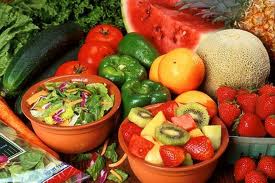 Numerous clinical research studies have been published implicating the potential impact diet has on your metal health and function. Your brain is as vital as your heart, in constant need of energy and oxygen. Under normal conditions, it depends mostly on glucose (end product of carbohydrate metabolism) for energy and it uses 20% of your energy intake at rest. (1) Its a highly metabolic organ. But to keep your brain healthy, just like you do your heart, you also need to feed it foods rich in omega 3 fatty acids and antioxidants for brain development and proper function.
Numerous clinical research studies have been published implicating the potential impact diet has on your metal health and function. Your brain is as vital as your heart, in constant need of energy and oxygen. Under normal conditions, it depends mostly on glucose (end product of carbohydrate metabolism) for energy and it uses 20% of your energy intake at rest. (1) Its a highly metabolic organ. But to keep your brain healthy, just like you do your heart, you also need to feed it foods rich in omega 3 fatty acids and antioxidants for brain development and proper function.
Docosahexaenoic acid (DHA), is the most abundant omega 3 fatty acid in the cell membrane, and is essential for brain development. (2) Many studies done on rodents have been given a general consensus that deficiencies of omega 3 fatty acids have resulted in impairment in both learning and memory function. Mental disorders in humans have also been linked from deficiencies in omega 3 fatty acid.
What are omega 3 fatty acids? They are essential fats that your body does not produce but need to be supplemented by the foods we eat; that’s why they are named “essential fatty acids”.
Antioxidants are in most plant bases foods we eat. They can lower your risk of infection and cancer and protect your cells from oxidative damage created by stress, the environment (pollution) or the not so good food choices people make, what we call “junk food!”
“Food is like a pharmaceutical compound that affects the brain”. This quote was stated by Dr. Fernando Gomez-Pinilla, a professor from UCLA’s Department of Neurosurgery and Physiology Science, and he has published many clinical trials on the effects nutrients have on brain function. (3) So the food choices you make can keep your brain healthy. Keep in mind that in combination with dietary factors, exercise and sleep are as important in protecting the brain from damage and also from the offset of aging. Here are the foods he highly recommends:
Foods rich in omega 3 fatty acids include:
Seafood: halibut, herring, mackerel, oysters, salmon, sardines trout and fresh tuna.
Vegetables: Brussels sprouts, kale, mint, parsley, spinach, watercress
Oils: rapeseed oil, cod liver oil, flaxseed oil, mustard oil, soybean oil, walnut oil
Nuts: walnuts, seeds
Fruit: avocado highest in all fruits, kiwi
Foods rich in antioxidants:
All colorful fruits and vegetables; and according to Dr. Gomez-Pinilla, blueberries are rich in polyphenols, which in rodent studies, has been shown to reduce the oxidative damage and boost the ability to learn and retain memory. He also mentioned another important polyphenol, curcumin (which is the substance that makes turmeric yellow), which has been suggested to enhance recovery events after brain trauma.(4) And Flavanoids, found in cocoa, green tea, citrus fruit, red wine and dark chocolate, have properties that can enhance cognitive abilities in the brain.(3)
Implementing and maintaining a balanced lifestyle, along with moderate food consumption that includes a diet rich in omega 3 fatty acids and antioxidants, plus exercise and adequate sleep, can increase cognitive abilities, aid in brain trauma recovery and can protect your brain from the risk of mental disorders.
(1) The Physiology. Wynn Kapit, Robert I Macey, Esmail Mesami. Pg 106
(2) Nature Reviews: Neuroscience”; Brain Foods: The Effect ofnNutrients on Brain Function; F. Gómez-Pinilla; 2008 July; 9(7): 568-578.
(3) http://newsroom.ucla.edu/portal/ucla/scientists-learn-how-food-affects-52668.aspx
(4) Surg Neurol: “The Influence of Diet and Physical Activity on BrainnRepair and Neurosurgical Outcome” F. Gomez-Pinilla, K. Kostenkova; 2008 October:n70(4): 333-336.
Comments
Powered by Facebook Comments




